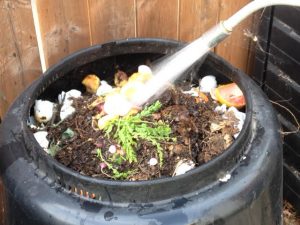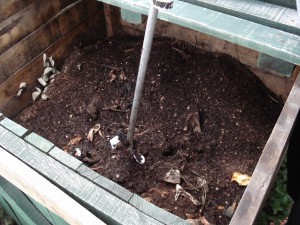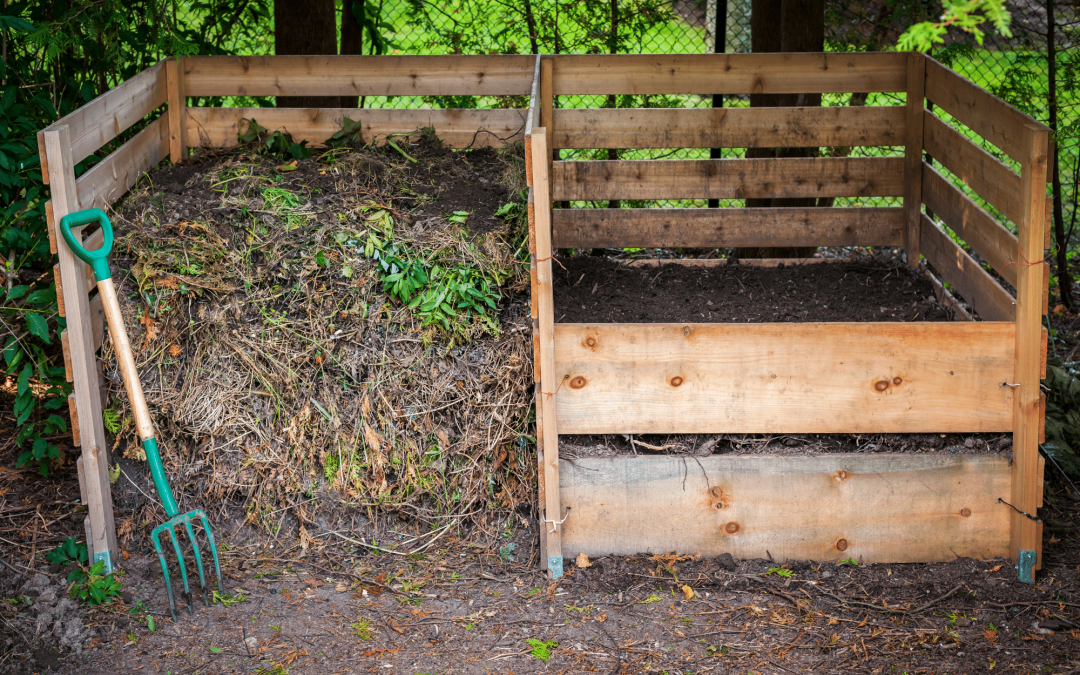 During hot and dry summers, you’ll want to water your compost pile regularly. Otherwise there is a possibility that your compost heap might attract some unwanted guests like wasps, mice or voles as these critters like a dry area to build their nests. Ideally, your compost pile should be about as damp as a wrung out sponge. Mixing your heap about once a week will also help deter them from coming in the first place. When your pile is moist and aerated, it helps build up the kind of heat that makes an inhospitable environment for mice and wasps.
During hot and dry summers, you’ll want to water your compost pile regularly. Otherwise there is a possibility that your compost heap might attract some unwanted guests like wasps, mice or voles as these critters like a dry area to build their nests. Ideally, your compost pile should be about as damp as a wrung out sponge. Mixing your heap about once a week will also help deter them from coming in the first place. When your pile is moist and aerated, it helps build up the kind of heat that makes an inhospitable environment for mice and wasps.
To get rid of wasps
If you notice that wasps are present but there is no nest yet, then add water right away and stir the pile so that it’s moist throughout. Also, make sure you always cover your food scraps with leaves or another “brown” material.
If the wasps have built a nest, then you’ll want to explore other options. If you feel brave (beware of being stung!), you could stick a hose into the pile and soak it down but stand at a distance. It’s better to do this at night when the wasps are less active. Watch the pile over the next few days to see if the wasps have gone. Keep in mind that sometimes it’s not worth the risk of getting stung – it might simply be best to wait until they leave or die off in the fall.
To get rid of mice or voles

If mice or voles have made a home in your compost bin, give the pile a good soak till it’s wet all the way to the bottom where the nest is most likely to be. Note that they may be burrowing under your bin, so look for any tunnels around the edges and flood them with water too. The tunnels will collapse but if they reappear keep flooding them. These little fellows do not like a wet home so they will likely leave. Once your compost pile is soaked, it should be safe to aerate without having to worry about hitting one! Keep aerating your pile daily for 3 or 4 days in a row to disturb the nest completely.
Avoid using poisons, as you don’t want chemicals in your compost. There is a also risk they could be ingested by pets.
Once the mice or voles are gone, you’ll want to avoid their return by keeping your compost heap at a warm temperature. You can do this by aerating the pile about once a week and making sure there is adequate moisture. Also, ensure you have the balance between “browns” and “greens” and that you are not adding foods that could attract animals, such as meat and dairy. You might also want to pest proof your bin to make sure they don’t visit your compost bin again!




Recent Comments